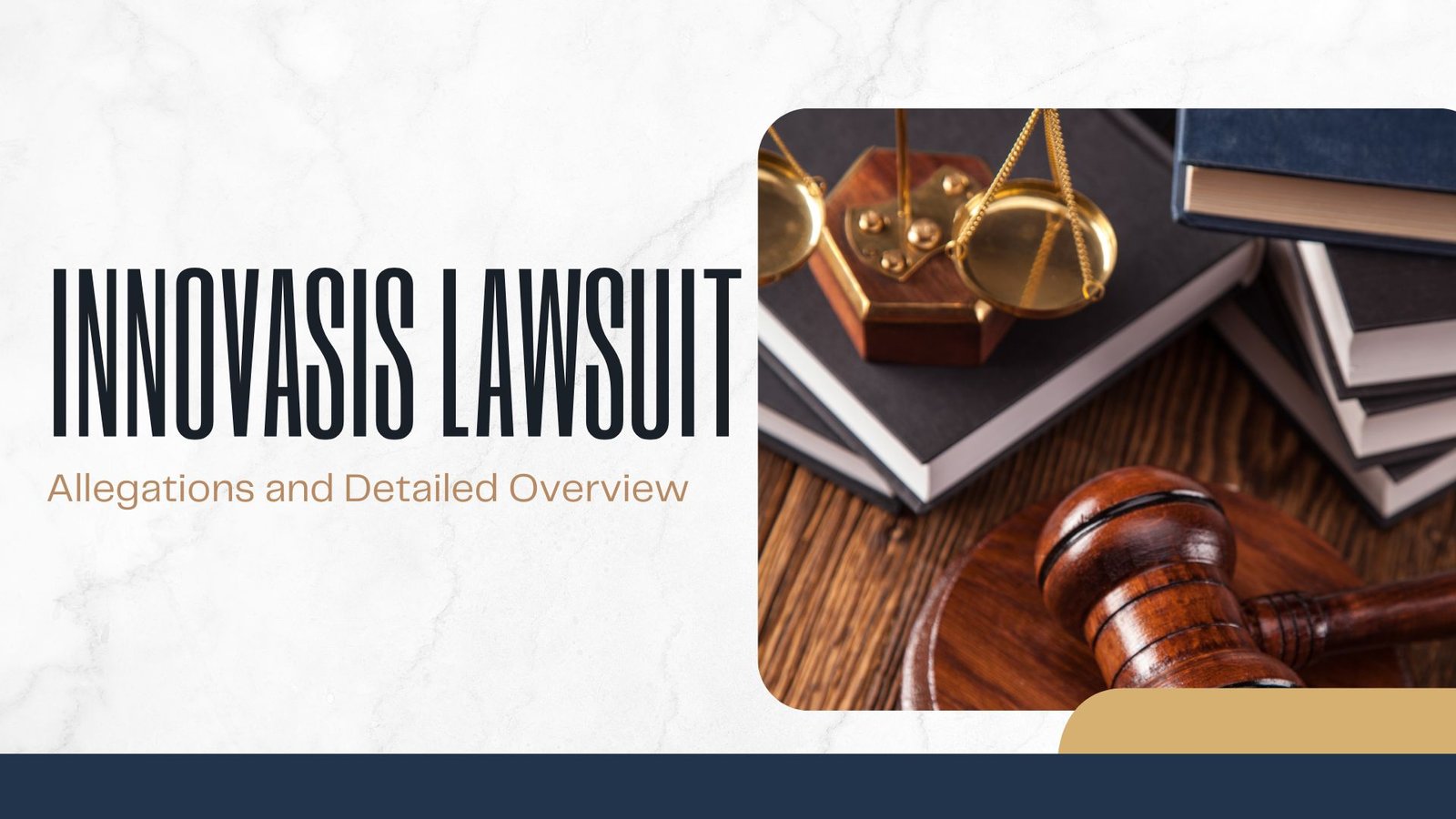Innovasis Inc. is a spinal device manufacturer based in Utah. Its founder and President, Brent Felix, and former CFO, Garth Felix, faced legal action. They were accused of violating the False Claims Act. The company allegedly used improper financial practices. These practices aimed to promote the use of spinal devices.
This article covers the allegations and legal proceedings. It also explains the implications of the Innovasis lawsuit.
Allegations Against Innovasis
Between January 1, 2014, and December 31, 2022, Innovasis allegedly provided improper remuneration to seventeen orthopedic surgeons and neurosurgeons. The purported aim was to induce these physicians to use Innovasis’s spinal implants and devices in procedures performed on Medicare beneficiaries.
Such actions are considered violations of the Anti-Kickback Statute, which prohibits offering financial incentives to influence medical decisions involving federally funded healthcare programs.
The specific forms of alleged improper payments included:
- Consulting Fees: Payments made to physicians under the guise of consulting arrangements.
- Intellectual Property Acquisition and Licensing Fees: Compensation for intellectual property that, in some cases, lacked proper valuation or was never utilized.
- Registry Payments: Fees purportedly for data collection or registry participation.
- Performance Shares: Allocation of company shares to physicians, potentially aligning their financial interests with the company’s success.
- Luxury Travel and Entertainment: Expenses covered for trips to luxury ski resorts, lavish dinners, and holiday parties for surgeons, their office staff, and family members.
These inducements were allegedly designed to influence the surgeons’ choice of spinal devices, compromising the integrity of medical decision-making and potentially impacting patient care.
Legal Proceedings and Settlement
In May 2024, Innovasis and the Felix brothers agreed to a settlement to resolve the allegations. The terms included a total payment of $12 million, with Innovasis responsible for $11.625 million, Brent Felix for $250,000, and Garth Felix for $125,000. This settlement addressed the claims without an admission of liability.
The case was initiated by a qui tam lawsuit filed by Robert Richardson, a former Regional Sales Director for Innovasis. Under the False Claims Act’s whistleblower provisions, Richardson was entitled to a portion of the recovered funds, amounting to approximately $2.2 million.
Unveiling Compliance Issues
In April 2019, during an internal compliance audit related to a business acquisition, Innovasis’s Board of Directors uncovered significant compliance issues. A high-level employee had overridden the Compliance Committee, independently negotiating and executing physician agreements with improper incentives. This individual also excluded other committee members from meetings, raising concerns about the company’s internal controls.
Voluntary Self-Disclosure and Legal Proceedings
Following the audit findings, Innovasis engaged the healthcare law firm Hooper Lundy & Bookman, P.C., and decided to self-disclose the noncompliance issues to the U.S. government in May 2019. The company overhauled its compliance program and procedures with external counsel’s assistance. During this period, the implicated high-level employee resigned.
Despite Innovasis’s proactive measures, a former employee filed a whistleblower lawsuit in federal court in October 2019. This lawsuit came after the company’s self-disclosure and acceptance into the government’s self-reporting program. Notably, the former high-level employee responsible for the non compliant agreements was not named in the whistleblower lawsuit.
Implications and Lessons Learned
The Innovasis case underscores the critical importance of compliance with the Anti-Kickback Statute and the False Claims Act within the medical device industry. It highlights the necessity for companies to establish and maintain robust compliance programs to prevent improper financial relationships that could influence medical decision-making. The settlement also serves as a reminder of the potential legal and financial consequences for companies and executives who engage in or overlook such practices.
Furthermore, the case illustrates the role of whistleblowers in uncovering and addressing fraudulent activities in healthcare. Individuals with insider knowledge can play a pivotal role in enforcing compliance and ensuring ethical practices within the industry.
Innovasis’s Commitment to Compliance and Future Directions
Post-settlement, Innovasis emphasized its dedication to advancing spine care and maintaining robust compliance standards. The company contracted a third party to collect outcome data on over 3,800 patients, showcasing excellent results with their bioactive implants made of PEEK infused with hydroxyapatite.
Innovasis also launched HA Cancellous PEEK implants, which are chemically and structurally bioactive, positioning the company as a leader in offering such products backed by clinical data.
Conclusion
The lawsuit against Innovasis Inc. brought to light significant concerns, but the company continues to innovate with groundbreaking products in spinal surgery. The allegations and subsequent settlement emphasize the need for transparency and adherence to legal standards in interactions between medical device manufacturers and healthcare providers.
Maintaining ethical practices is essential to uphold the integrity of medical decisions and ensure patient trust in the healthcare system.
Frequently Asked Questions
1. What is the Innovasis lawsuit about?
The lawsuit involved allegations that Innovasis Inc. provided improper financial incentives to surgeons to encourage them to use its spinal implants. These actions allegedly violated the Anti-Kickback Statute and the False Claims Act.
2. Who filed the lawsuit against Innovasis?
The case was initiated by Robert Richardson, a former Regional Sales Director at Innovasis, under the False Claims Act’s whistleblower provisions.
3. Did Innovasis admit to any wrongdoing?
No, the company and its executives settled the case without admitting liability.
4. How much did Innovasis pay to settle the lawsuit?
Innovasis agreed to pay $11.625 million, while its executives, Brent Felix and Garth Felix, paid $250,000 and $125,000, respectively, bringing the total settlement to $12 million.
5. What law did Innovasis allegedly violate?
The company was accused of violating the Anti-Kickback Statute and the False Claims Act, which prohibit financial incentives that influence medical decisions involving federal healthcare programs.
6. How much did the whistleblower receive from the settlement?
Robert Richardson received approximately $2.2 million for his role in exposing the alleged misconduct.
7. What is the Anti-Kickback Statute?
It is a federal law that prohibits companies from offering financial incentives to healthcare providers in exchange for using specific medical products or services covered by government programs like Medicare.






4 thoughts on “Innovasis Lawsuit: A Deep Dive into the $12M Settlement and Its Implications for Medical Device Compliance”